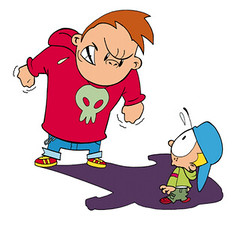| 12191952260 | allegory | story or poem that can be used to reveal a hidden meaning |  | 0 |
| 12191952261 | allusion* | A reference to a well-known person, place, event, literary work, or work of art |  | 1 |
| 12191952262 | anaphora* | repetition in first part of a sentence , to have an artistic meaning |  | 2 |
| 12191952263 | apostrophe | figure of speech used to adresss an imaginary character |  | 3 |
| 12191952264 | approximate rhyme | words in rhyming pattern that sound alike |  | 4 |
| 12191952265 | aside | when a character's dialogue is spoken but not heard by other actors on the stage |  | 5 |
| 12191952266 | blank verse | poetry written in meter without an ending rhyme |  | 6 |
| 12191952267 | cacophony | blend of unharmonious sounds |  | 7 |
| 12191952268 | caesura | pause in the middle of a line |  | 8 |
| 12191952269 | catharsis | the release of emotions through art (emotional cleanse) |  | 9 |
| 12191952270 | characterization* | process of revealing characters personality |  | 10 |
| 12191952271 | comedy | drama that is amusing or funny |  | 11 |
| 12191952272 | didactic writing | writing with a primary purpose to teach or preach |  | 12 |
| 12191952273 | dramatic exposition* | prose commentaries, to provide background information about the characters and their world |  | 13 |
| 12191952274 | end stopped line | line ending in regular punctuation |  | 14 |
| 12191952275 | epiphany | when a character receives a spiritual insight into their life |  | 15 |
| 12191952276 | euphony | smooth choice and arrangement of sounds |  | 16 |
| 12191952277 | extended figure | A figure of speech sustained or developed through a considerable number of lines or through a whole poem. |  | 17 |
| 12191952278 | figurative language | Language that cannot be taken literally since it was written to create a special effect or feeling. |  | 18 |
| 12191952279 | figure of speech | a way of saying something other than the ordinary way |  | 19 |
| 12191952280 | foot | basic unit in the scansion or measurement of verse , stressed and un stressed syllables |  | 20 |
| 12191952281 | form | external pattern or shape of a poem |  | 21 |
| 12191952282 | hamartia* | tragic flaw which causes a character's downfall |  | 22 |
| 12191952283 | verbal irony | A figure of speech in which what is said is the opposite of what is meant |  | 23 |
| 12191952284 | dramatic irony | Irony that occurs when the meaning of the situation is understood by the audience but not by the characters in the play. |  | 24 |
| 12191952285 | situational irony* | refers to an occurrence that is contrary to what is expected or intended |  | 25 |
| 12191952286 | meter | A regular pattern of stressed and unstressed syllables in a line of poetry |  | 26 |
| 12191952287 | metonymy | A figure of speech in which something is referred to by using the name of something that is associated with it |  | 27 |
| 12191952288 | motivation* | A need or desire that energizes and directs behavior |  | 28 |
| 12191952289 | hyperbole* | A figure of speech that uses exaggeration to express strong emotion, make a point, or evoke humor |  | 29 |
| 12191952290 | oxymoron | A figure of speech that combines opposite or contradictory terms in a brief phrase. |  | 30 |
| 12191952291 | paradox | A contradiction or dilemma |  | 31 |
| 12191952292 | rhythm | A regularly recurring sequence of events or actions. |  | 32 |
| 12191952293 | sarcasm* | the use of irony to mock or convey contempt |  | 33 |
| 12191952294 | satire | A literary work that criticizes human misconduct and ridicules vices, stupidities, and follies. |  | 34 |
| 12191952295 | simile* | A comparison using "like" or "as" |  | 35 |
| 12191952296 | soliloquy | A long speech expressing the thoughts of a character alone on stage |  | 36 |
| 12191952297 | stream of consciousness | private thoughts of a character without commentary |  | 37 |
| 12191952298 | synecdoche | a figure of speech in which a part is made to represent the whole or vice versa |  | 38 |
| 12191952299 | synesthesia | describing one kind of sensation in terms of another ("a loud color", "a sweet sound") |  | 39 |
| 12191952300 | theme* | Central idea of a work of literature |  | 40 |
| 12191952301 | tone* | Attitude a writer takes toward the audience, a subject, or a character |  | 41 |
| 12191952302 | understatement | the deliberate representation of something as lesser in magnitude than it actually is; a deliberate under-emphasis |  | 42 |
| 12191952303 | polysyndeton* | the use, for rhetorical effect, of more conjunctions than is necessary or natural |  | 43 |
| 12191952304 | asyndeton* | a construction in which elements are presented in a series without conjunctions |  | 44 |
| 12191952305 | ambiguity | An event or situation that may be interpreted in more than one way. |  | 45 |
| 12191952306 | archetype | an original model on which something is patterned |  | 46 |
| 12191952307 | antecedent action | action or events which occur before the story begins |  | 47 |
| 12191952308 | aphorism | A brief, cleverly worded statement that makes a wise observation about life. |  | 48 |
| 12191952309 | analogy | method of comparing two similar things using parallelism to show similarities |  | 49 |
| 12191952310 | anecdote | a short and amusing or interesting story about a real incident or person |  | 50 |
| 12191952311 | antithesis | an exact opposite; an opposite extreme |  | 51 |
| 12191952312 | colloquial | characteristic of informal conversation |  | 52 |
| 12191952313 | chiasmus | a statement consisting of two parallel parts in which the second part is structurally reversed |  | 53 |
| 12191952314 | coherence | the quality of being logical, orderly, and clearly connected |  | 54 |
| 12191952315 | conceit | a fanciful, particularly clever extended metaphor |  | 55 |
| 12191952316 | diacope | repetition of a word or phrase with one or two intervening words |  | 56 |
| 12191952317 | explication | a detailed explanation of the meaning of a text |  | 57 |
| 12191952318 | juxtaposition | placing two elements side by side to present a comparison or contrast |  | 58 |
| 12191952319 | hypophora | the technique of asking a question, then proceeding to answer it |  | 59 |
| 12191952320 | euphemism | An indirect, less offensive way of saying something that is considered unpleasant |  | 60 |
| 12191952321 | enumeratio | detailing parts, causes, effects, or consequences to make a point more forcibly |  | 61 |
| 12191952322 | enjambment | line of poetry that ends with no punctuation and consequently runs over into the next line |  | 62 |
| 12191952323 | invective | insulting, abusive, or highly critical language |  | 63 |
| 12191952324 | litotes | A form of understatement that involves making an affirmative point by denying its opposite |  | 64 |
| 12191952325 | motif | A recurring theme, subject or idea |  | 65 |
| 12191952326 | parallelism | the use of a series of words, phrases, or sentences that have similar grammatical form |  | 66 |
| 12191952327 | prosody | the study of sound and rhythm in poetry |  | 67 |
| 12191952328 | syntax | the grammatical arrangement of words in sentences |  | 68 |
| 12191952329 | volta | the shift or point of dramatic change in a poem | 69 | |
| 12191952330 | rhetoric | the art of using language effectively and persuasively |  | 70 |
| 12191952331 | rhetorical question | A question asked merely for effect with no answer expected. |  | 71 |
| 12191952332 | parody | a work which imitates another in a ridiculous manner |  | 72 |
| 12191952333 | inference | A conclusion reached on the basis of evidence and reasoning |  | 73 |
| 12191952334 | tragedy | A drama or literary work in which the main character is brought to ruin or suffers extreme sorrow |  | 74 |
| 12191952335 | undertone | a hidden or implied meaning |  | 75 |
| 12191952336 | dissonance | lack of agreement or harmony |  | 76 |
| 12191952337 | frame story | story that contains another story/stories that is/are usually significant to the main story |  | 77 |
| 12191952338 | expletive | an exclamation or oath, often obscene |  | 78 |
| 12191952339 | atmosphere/mood | the mood/ feeling of the literary work created for the reader by the writer. | 79 | |
| 12191952340 | auditory imagery | use of language to represent an experience pertaining to sound | 80 | |
| 12191952341 | universal theme | A message about life that can be understood by most cultures |  | 81 |
| 12191952342 | implied meaning | the meaning of a word understood, though unexpressed, usually through connotations and imagery; where you have to read between the lines to get the underlying meaning/subtext of a text |  | 82 |
| 12191952343 | interior monologue | a form of stream-of-consciousness writing that represents the inner thoughts of a character |  | 83 |
| 12191952344 | case history | medical approach involving the observation and analysis of individual patients | 84 | |
| 12191952345 | character sketch | a short piece of writing that reveals or shows something important about a person or fictional character | 85 | |
| 12191952346 | epilogue | a short passage added at the end of a literary work | 86 | |
| 12191952347 | epistle | a letter or literary composition in letter form | 87 | |
| 12191952348 | hexameter | a line of poetry containing six feet | 88 | |
| 12191952349 | tetrameter | a line of poetry containing four feet | 89 | |
| 12191952350 | pentameter | a line of poetry containing five feet | 90 | |
| 12191952351 | lament | a passionate expression of grief or sorrow | 91 |
AP English Literature Rhetorical Devices Flashcards
Primary tabs
Need Help?
We hope your visit has been a productive one. If you're having any problems, or would like to give some feedback, we'd love to hear from you.
For general help, questions, and suggestions, try our dedicated support forums.
If you need to contact the Course-Notes.Org web experience team, please use our contact form.
Need Notes?
While we strive to provide the most comprehensive notes for as many high school textbooks as possible, there are certainly going to be some that we miss. Drop us a note and let us know which textbooks you need. Be sure to include which edition of the textbook you are using! If we see enough demand, we'll do whatever we can to get those notes up on the site for you!

